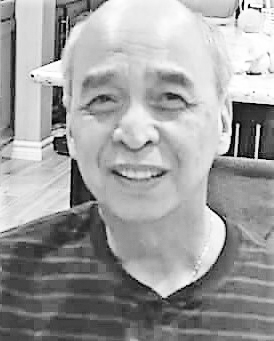I don’t hear much from my mother these days. She has been suffering from arthritis for almost two years now. Her joints are swollen most of the time. She can hardly write. When she feels a little better, the first thing she does is write us. But her handwriting now looks different. Many of her strokes are unfinished. The lines are crooked. It is not hard to conclude from the way she scribbles that she is in pain.
It must have been difficult for a former school teacher not to be able to write legibly. Or worse it must have been frustrating for a former school supervisor, who used to visit her teachers in the barrios, not to be able to walk without help.
It does not matter that my mother is suffering from what appears to be a debilitating disease. Despite her weakened body, she will always remain 41 years old to me. Maybe that is because my best memory of my mother was when she was 41 and I was 8 years old. This was my age when I started to internalize certain values that my mother tried to instil in me like discipline, sense of fairness, the importance of education, and love of God and country.
I did not have to wrestle with my mother on the importance of these virtues. Somehow I knew she was right. At 8, I knew what kind of person she wanted me – and my brothers – to become. The phenomenologists would term this sudden realization of profound awareness ‘moments.’ Of course, I have other beautiful memories of my mother. But it was when I was 8 that I realised what kind of a person she was. The rest of my relationship with my mother as a growing boy was a constant affirmation of this important lesson learned from her.
When I entered the Jesuit novitiate in college, I started to see her less often. Distance kept us from seeing each other regularly. She stayed in the province because of her job. She would visit me during summer, but a large portion of our time was spent talking about my brothers, my father, my relatives, the farm, the family dog, and her work. Somehow she had difficulty reconnecting because I would talk about government corruption, military abuses, social change and other related topics that, at that time, appeared ‘strange’ to her. But being a mother, she would listen to me patiently until I got exhausted.
Without the benefit of seeing each other regularly, I literally did not notice my mother grow in age. During those years that we were living separately, she faithfully wrote me dispelling any thought that she has become inactive.
It has always been my desire to live close to my mother. I have always wanted to relive that time when she was 41 and I was 8, if only to check if I indeed became what she wanted me to be. The closest this became a reality was in 1983-1984 when she and my father visited Seattle to attend my graduation and visit their grandchildren. But during that time, my mother’s attention was focused on her grand-children. Once again, she became a teacher to them: reading stories, teaching them how to pray and instilling in them the virtue of respecting their parents.
It was not until last year that the unexpected finally hit me. For the first time she asked my father to write for her. She also had to be carried to my brother’s car. I talk with her over the phone and she was crying. The woman, who rightfully strikes me as a disciplinarian, strong –hearted and fearless, was in pain. There was a feeling of helplessness in her voice.
I felt sad. It was a different kind of sadness. The first woman who gave meaning and direction to my life when I was 8 was herself being tested by life’s realities.
It was only two years ago that my –parents celebrated their 50th wedding anniversary in the Philippines. They stood tall as they greeted their guests and talked about their children and grandchildren. But the scene was one of beautiful irony because I knew my parents were no longer young. My mother seems to have aged faster than my father. It will not be easy for me to watch my mother suffer in her old age, which is why in the silence of my heart she will always be 41 years old.
From the book of essays As I see It by the author, published in Seattle, Washington, USA










Leave a Reply